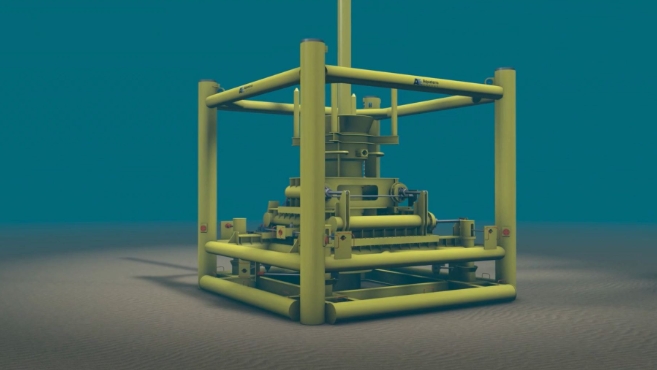
The project, part of the East Coast Cluster, will initially support three carbon capture initiatives in Teesside. Construction is set to begin in mid-2025, with the first CO2 injection planned for 2027 and operations starting in 2028. The North Sea Transition Authority (NSTA) granted NEP a permit allowing an annual injection of 4 million tonnes of CO2, aligning with the UK’s goal to capture and store 20-30 million tonnes annually by 2030.
Under the first contract, Aquaterra Energy will re-abandon two legacy wells to ensure the site’s long-term integrity for safe CO2 storage. The company will use its recoverable abandonment frame (RAF), a patent-pending technology enabling efficient vertical well re-entry and tie-back to prevent stored CO2 leakage. George Morrison, CEO of Aquaterra Energy, stated: “This is a milestone project for CCS in the UK, and we’re proud to be playing a central role. Our early recognition of the engineering challenges facing the sector has enabled us to be at the forefront of this pioneering initiative.”
The second contract involves providing seabed-to-surface well access for drilling six new CO2 injection subsea wells. Aquaterra will deploy its CCS-ready high-pressure subsea drilling riser system, featuring AQC-CW connectors designed for repeated use and long-term reliability. Ben Cannell, Innovation Director at Aquaterra Energy, noted: “Securing both scopes for the Northern Endurance Partnership reinforces confidence in our specialist CCS technology and well access expertise.”
The NEP has also awarded contracts to three other UK firms—Sonardyne, Noble Corporation, and Expro—to advance the project’s execution phase. Sonardyne will provide environmental monitoring, Noble’s Noble Innovator rig will drill six wells starting in Q3 2026, and Expro will handle well testing for two wells in the Endurance reservoir. Rich Denny, NEP’s Managing Director, emphasized: “These contract awards represent a major milestone in delivering the UK’s offshore carbon capture and storage infrastructure.”
The NEP infrastructure includes a CO2 gathering network, onshore compression facilities, a 145-kilometer offshore pipeline, and subsea injection systems for the Endurance saline aquifer, located 1,000 meters below the seabed. This project aims to decarbonize industries like steel and cement production, supporting the UK’s net-zero ambitions.